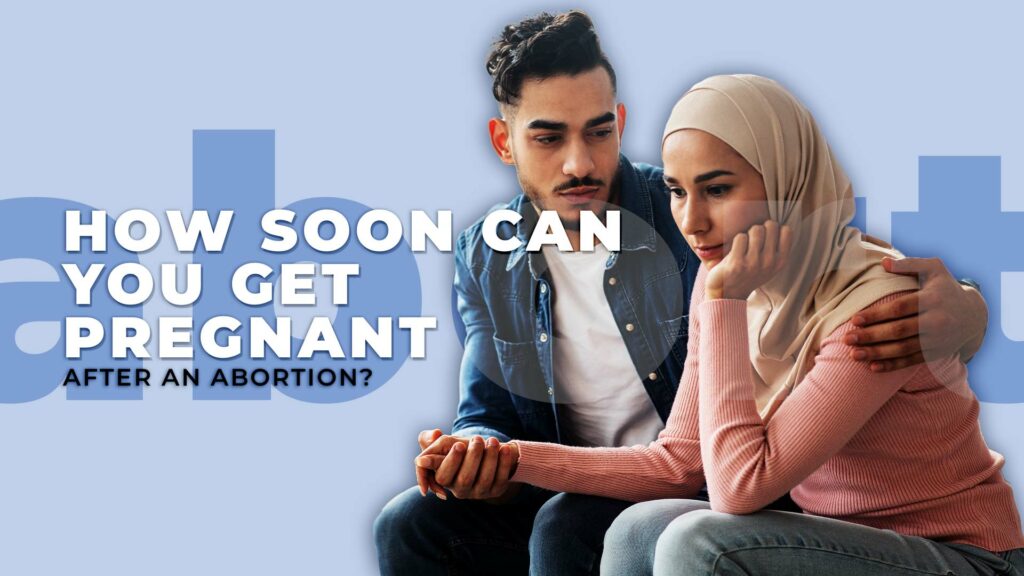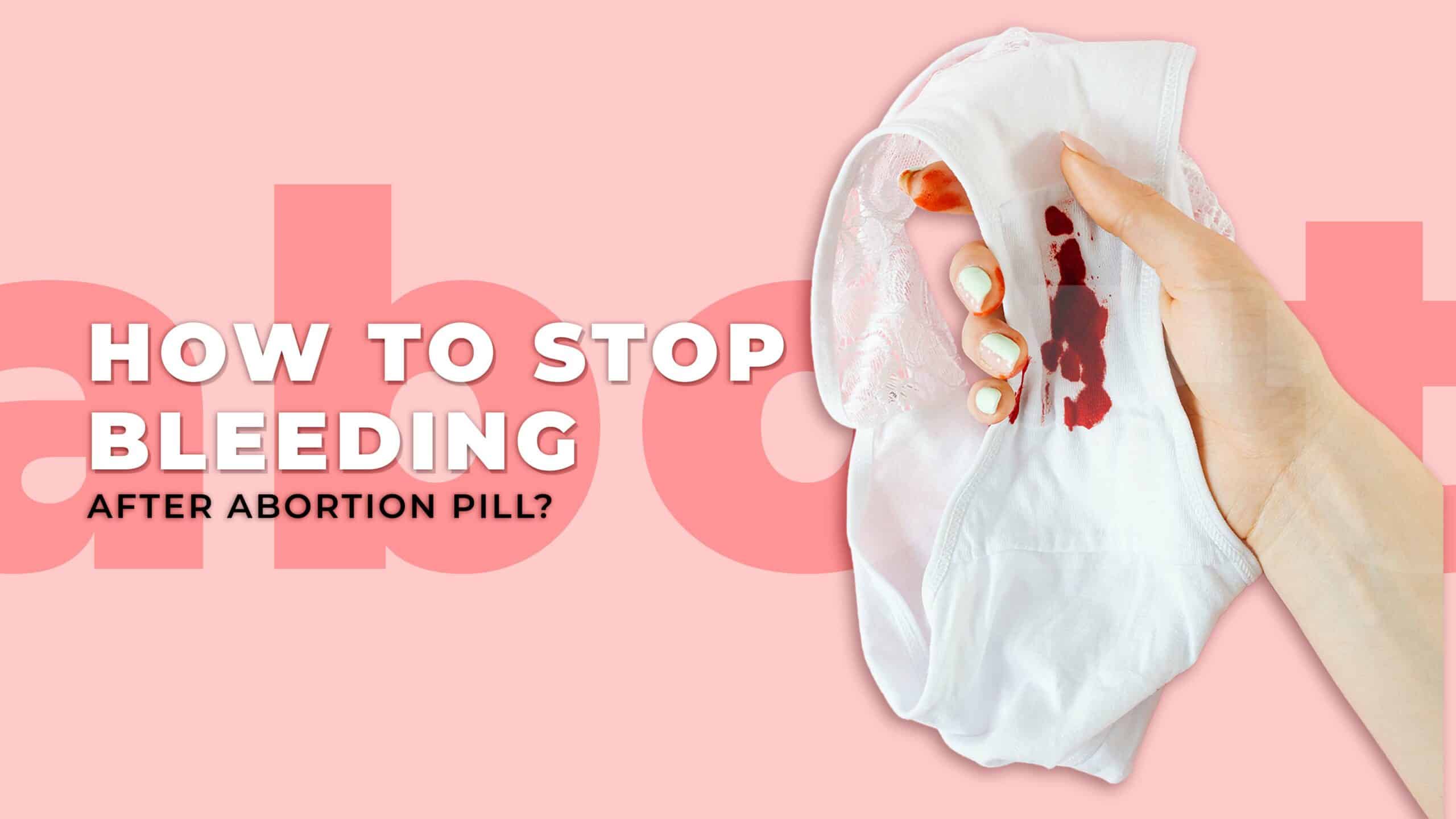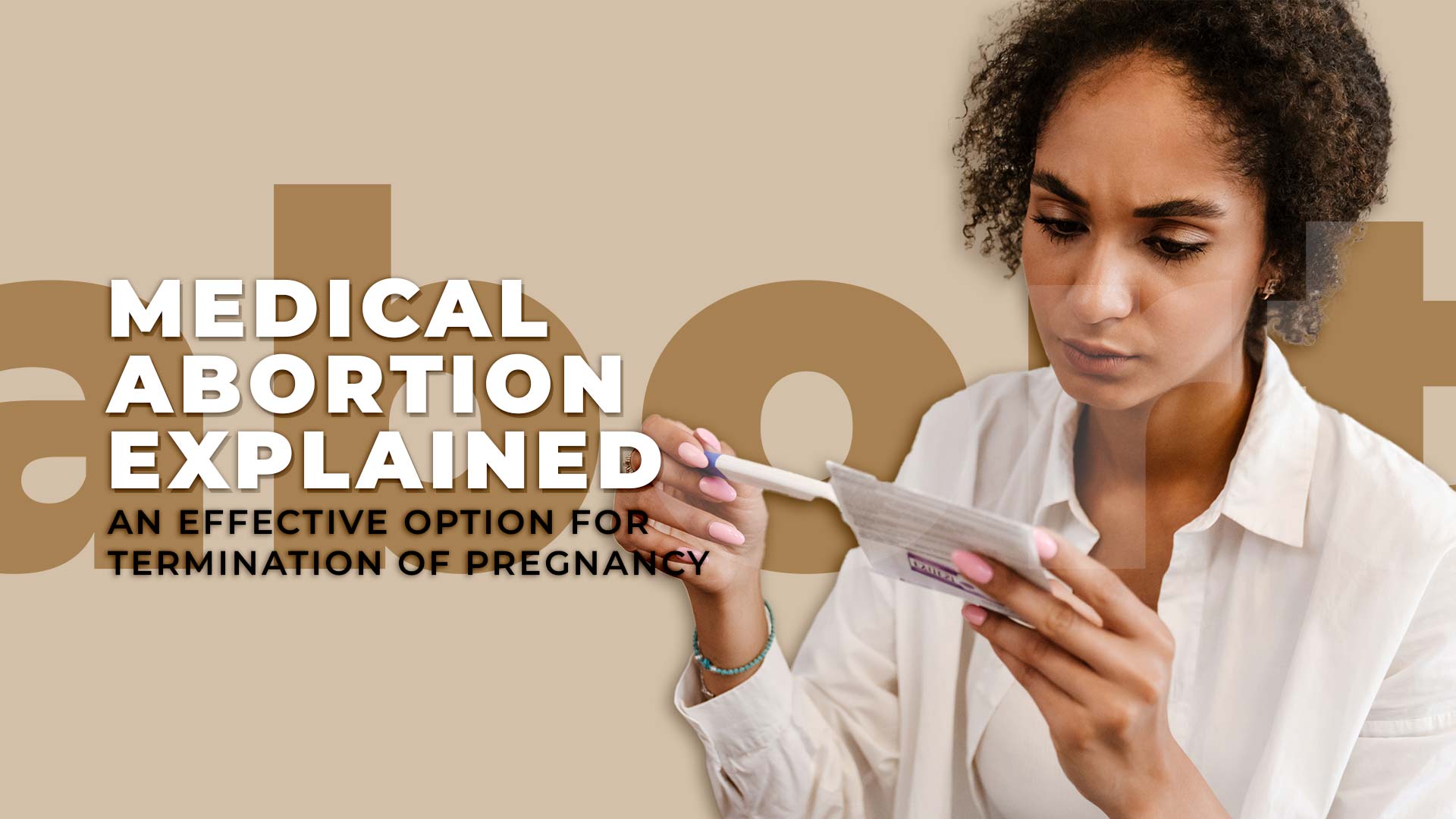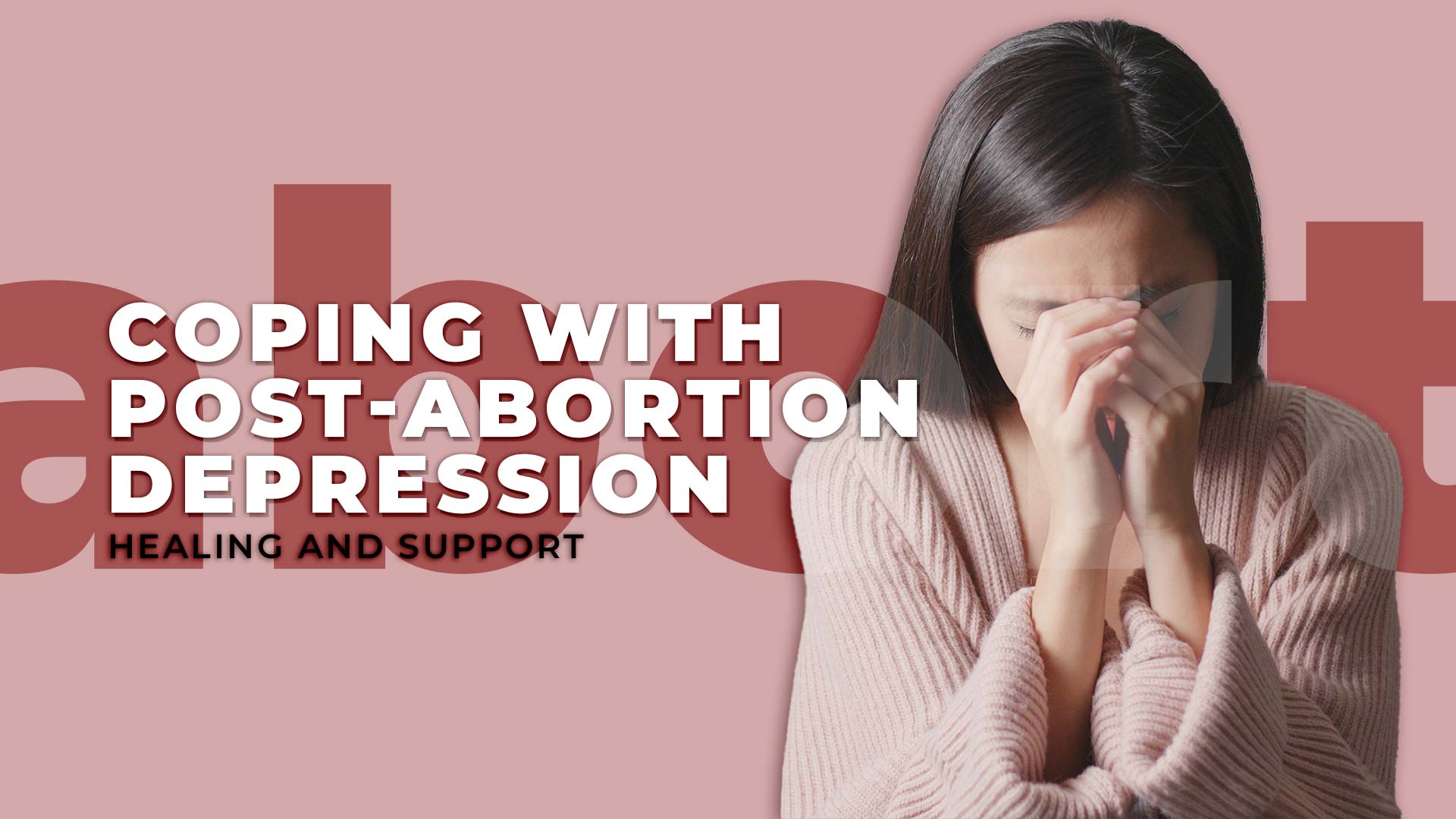After an abortion, you may ask yourself questions such as whether your sex drive will return, how to communicate with your partner about resuming sexual activity, and concerns regarding potential infections or another unintended pregnancy. This can be a challenging experience both physically and psychologically. Additionally, you may be contemplating which type of contraception is most suitable for you.
To navigate this complex period, it is essential to prioritize your well-being and identify what works best for you. This article includes exploring sex after abortion and contraceptive options if you do not wish to become pregnant again.
How long should you wait to have sex after an abortion?
After taking misoprostol for an abortion with pills, it is advisable to wait for a period of 4-7 days before engaging in sexual activity, as the cervix may be slightly open immediately after the abortion, increasing the risk of infection.
It is common to experience light bleeding irregularly for up to two weeks following the medical abortion, and it is generally recommended to wait until the bleeding subsides before resuming sexual activity. To prevent pregnancy, it is crucial to use contraception every time you have sexual intercourse or to start hormonal contraception on the day you take Mifepristone (injection, implant) or the day after using Misoprostol (oral contraceptive pill).
Even if it may take a few weeks before your menstruation cycle returns to normal, it’s possible to ovulate within the first two weeks after an abortion, which could lead to pregnancy if you’re not using contraception. Thus, it’s crucial to start using contraceptives immediately if you don’t want to become pregnant.
How soon can you get pregnant after an abortion?

It is possible to become pregnant almost immediately after having an abortion, so it is important to consider your options and preferences for the future. If you desire to get pregnant soon after having an abortion due to medical reasons or because of a change in your feelings or circumstances, it can be emotionally challenging. You can read our feature on pregnancy after abortion to help you navigate your emotions. Generally, fertility is not usually affected by an abortion, but more information can be found in our main article.
If you want to prevent another pregnancy after having an abortion, it is crucial to use contraception, even if you have not yet resumed your periods, as you may ovulate approximately two weeks before the next period is due. Sperm can survive in the body for up to five days, so it is important not to take any chances. Most clinics can provide contraception on the day of your abortion, and it is important to choose the type that is best for you.
How soon will contraception work after abortion?
The effectiveness of contraception after an abortion depends on the type of contraception and the type of abortion undergone. For a surgical abortion, contraceptive implants, injections, IUDs, and hormonal pills are all considered effective immediately after the procedure, and can be provided at that time. However, if you commence contraceptive pills or receive the contraceptive injection more than five days after the abortion, you’ll need to use additional contraception for a week. While an IUD can be inserted immediately after a surgical abortion, research has shown that there is a slightly higher risk of expulsion, particularly for more advanced gestations.
For a medical abortion, most hormonal contraceptive methods can be started at the time of the abortion. The specific timing may vary depending on the type of contraception chosen, and your doctor will advise you on when to start and how to access it. An IUD can be inserted immediately or a few days after the completion of the medical abortion, but you’ll need to use another contraceptive method in the meantime if you want to avoid the risk of becoming pregnant.
What can you do if you experience decreased sexual desire after an abortion?
After undergoing an abortion, sex may not be a priority due to the range of emotions and physical changes that one might experience. However, this is usually temporary. A study of 211 women who had abortions, either with medication or surgery, during the first 12 weeks of pregnancy was conducted. They were asked about their sexual desire and satisfaction following their abortions.
The study revealed that one out of four women who had surgical abortions did not engage in sexual activity four weeks after the procedure, compared to one in twenty women who had medical abortions. After six months, only 3.3% of women who had surgical abortions had still not engaged in sexual activity, and none of those who had medical abortions had abstained.
Some of the common causes of decreased sex drive after an abortion include
- anxiety about becoming pregnant again,
- painful sex, and
- loss of libido.
If you are anxious about pregnancy, it is advisable to seek advice from your doctor or sexual health clinic about available contraceptive options. In case of painful sex, it is essential to consult a doctor to check for infections or scarring. If you have lost your sex drive, talking to your partner about your feelings and seeking the assistance of a counselor may be helpful.
Abortion and relationships

The decision to have an abortion can have an effect on your relationship, but the extent of its impact can vary depending on several factors, such as the reason for the abortion, the nature of your relationship before the procedure, and your ability to communicate with your partner afterward.
A study involving 92 women who had abortions for social reasons while in stable relationships found that their likelihood of breaking up was not significantly different from that of couples who did not have abortions. If the reason for the abortion is related to issues such as financial pressure or timing, it is possible that you and your partner may decide to plan another pregnancy in the future when the timing is better.
On the other hand, if the reason for the abortion is that you do not see a future with your partner and that situation is unlikely to change, then a breakup may be a possibility. It is important to note that there are many reasons why people have abortions, and in some cases, going through the experience together could bring you closer.
If you are concerned about the effect of abortion on your relationship, relationship counseling could be an option to consider. If you have both been supportive of each other through the process, you may even feel a stronger bond.
Abortion and men
The emotional impact of abortion on men can be challenging as they may feel like they have limited rights in the decision-making process regarding their partner’s pregnancy, as they are not legally involved in the decision. However, if they have had an opportunity to express their thoughts and feelings and communicate with their partner, they may feel that the decision was reached jointly.
In cases where a partner undergoes an abortion without the other’s consent or knowledge, this can lead to ongoing issues that are best resolved through counseling rather than ignored. It may not always be possible to overcome such differences, and separation may be the best option.
When the decision to have an abortion is made due to a health risk to the mother or fetal abnormality, it can be an emotionally difficult time for both partners. The decision to terminate the pregnancy is a weighty one, and there may be concerns about similar situations occurring in the future. In such cases, counseling together with a partner can be a helpful way to talk through and manage feelings about the experience.
When should you contact a doctor?

If you have any concerns or apprehensions about sexual activity after undergoing an abortion, it is advisable to seek the advice of a doctor or consult with your abortion provider.
Common reasons for seeking medical advice about sexual activity after an abortion may include arranging for contraception, experiencing pain during sex, or a loss of sex drive.
Takeaway
Resuming sexual activity after an abortion is a personal decision and varies from person to person. It is important to wait until the body has fully healed and to follow the healthcare provider’s instructions for recovery.
It is also recommended to use contraception to prevent another unintended pregnancy and to have open and honest communication with sexual partners. Seeking support from a healthcare provider or counselor can also be helpful in navigating the emotional and physical aspects of post-abortion care.
References
- Morotti M, Calanni L, Gianola G, Anserini P, Venturini PL, Ferrero S. Changes in Sexual Function after Medical or Surgical Termination of Pregnancy. The Journal of Sexual Medicine [Internet]. Jsm.jsexmed.org 2014 [cited 2022 Aug 22];11(6):1495–504. https://www.jsm.jsexmed.org/article/S1743-6095(15)30791-8/fulltext
- Barnett W, Freudenberg N, Wille R. Partnership after induced abortion: a prospective controlled study. Arch Sex Behav. 1992 Oct;21(5):443-55. doi: 10.1007/BF01542269. PMID: 1417474. https://link.springer.com/article/10.1007/BF01542269
- Physical side effects after having an abortion [Internet]. hse.ie. 2018 [cited 2022 Aug 22]. https://www2.hse.ie/conditions/abortion/after/physical-side-effects/
- Medical Abortion Aftercare [Internet]. msichoices.org.uk. 2019 [cited 2022 Aug 22]. https://www.msichoices.org.uk/media/3290/telemedicine-medical-aftercare-booklet-2020.pdf
- Fertility Window Calculator [Internet]. americanpregnancy.org [cited 2022 Aug 22]. https://americanpregnancy.org/getting-pregnant/infertility/fertility-window/
- Postabortion IUD use: Safety and timing [Internet]. ipas.org 2021 [cited 2022 Aug 22]. https://www.ipas.org/clinical-update/english/postabortion-care/postabortion-iud-use-safety-and-timing/
- Intrauterine device (IUD) – Your contraception guide [Internet]. Nhs.uk 2021 [cited 2022 Aug 22]. https://www.nhs.uk/conditions/contraception/iud-coil





